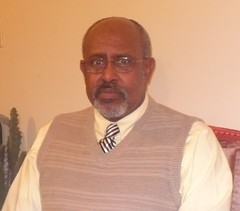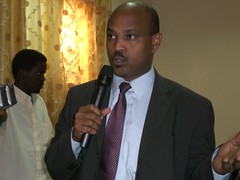
by: Dr. Shacabi, California, USA
After leaving their country for better lives abroad, Somalian emigrants often send money to their native country as remittances. The impact of these funds are staggering, but they are better channeled in Compliance with following the guidelines of USA Patriot ACT and FinCen Money Transfer rules and regulations.
The physical disconnection of millions of Somali emigrants from homes, families and friends in search of better lives abroad is partly bridged by a financial connection. It’s a simple formula. Developed countries attract migrant workers, and migrant workers send home money as remittances.
It is believed that far larger amounts are transferred officially through Somali Money Transfer Companies. Somali Emigrants does not have central government for the last 19 years and the whole financial industries and the banking system has collapsed on the aftermath of Somali wars and lack of functioning government. Currently, there are no banks operating near their home towns where they send remittances so in many transition countries, like Somalia most remittances enter through Hawal system or Money Transfer System.
The big question facing governments and central banks today is how to further improve the impact of these huge inflows of money on their economies. To address this subject, the Somali Communities with the help of Somali Money Transfer Companies and their Lawyers recently arranged a seminar, on remittances around the globe. The event attracted Somali Communities and the owners of Somali Hawala Companies in the United States, in order to share views and experience with senior staff from International Financial Institutions,representatives from the USA and the Somali Money Transfer Management and Staff-Members.
It is becoming clear that remittances are a crucial part of the wider model for developing economies, therefore taking an active role in promoting the awareness of remittances, improving ways to better channel these funds, and building on lessons learned from different countries to make better use of money transfers in the future is important.
Remittances are one of the most important sources of finance for developing nations and therefore we must establish an environment that can enhance their impact on the overall development process. One way to do this is to improve legislation and regulation to gain people’s trust, and to ensure predictable and safe money transfers. By developing more formal routes for money transfers, countries can help integrate these funds in the wider economy.
Some of the biggest recipients of remittances are people living in poorer, more rural areas, people with little knowledge or access to banking systems. It is a question of educating people in diaspora to Create Islamic banks, especially those who lives in Minneapolis and Columbus since there are a large Somali population by demanding and educating their elected officials to pass a law of establishing Islamic banks and this is one of their rights and Islamic beliefs to have an alternative of interest banks to non-Interest Banking system. This will help Muslim communities and Somali emigrants to open an account, and banks using the opportunity of remittances to offer specifically tailored products.Once Islamic Banks established in Western Countries such as United States and Europe, banks must reach out more through extended branches or agencies. Currently, there is an Islamic bank in Great Britain and they have a huge success of serving Muslim Communities.
Encouraging beneficiaries to use local Islamic banks will help strengthen the banking sector, expand credit availability and new products in transition countries. There is also an upside for those sending money. With transfer fees often very high, encouraging a more formal means can create a more competitive environment.
It is a win-win situation,. Islamic Banks and the economy will benefit, and new customers can benefit from products they were never aware existed such as non-interest on savings, or leveraging money for non-interest mortgages or loans to start a business.
The Somali Money Transfer Companies are looking at opportunities in directing remittance flows more effectively. The Bank could, for example, work with local banks to help develop new remittance-based products while addressing barriers to bank use such as high administration costs; it could also help banks establish international networks to benefit senders and receivers of remittances.
It is obvious that remittances are an asset not yet being used properly, It is a question of creativity and innovation to better manage the flow of these resources. This way they can further benefit individuals and economies alike.
Recently, the Law Enforcement has done routine investigations on some of the Somali Money Transfer locations in Minneapolis and Columbus and this was due to the issue of Piracy and missing some young Somali's. Somalians need to be vigilant and continue as they have shown before to be a law abiding citizens and follow the rules and the regulations in the foreign countries that they are residing. As far as the Money Transfer Companies,they need to continue on having and keeping the computer data records, knowing their customers, Identify them by asking their IDS and follow the USA Patriot ACT and FinCen Compliance.
Dr. Shacabi
California, USA
email: shacabi@yahoo.com








